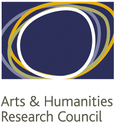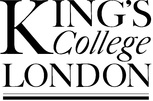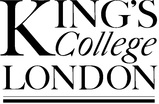The workshop examines how higher education institutions contribute to local
socio-cultural and economic regeneration through processes, initiatives and
projects which involve cultural and creative elements or strategies. It will
explore the effects of these partnerships and consider how projects involving
higher education institutions and local cultural and regeneration partners might
re-shape local communities and economies in both positive and negative ways, for
example, through gentrification. It will explore how local communities
are engaged within the process, the roles they play, and the relationships, tensions and exchanges of knowledge between higher education, local communities and policy makers in the practice of regeneration. It will also look at the impact of higher education intervention in local regeneration from economic, social and skills perspectives.
Contributing to the seminar
As part of the call for papers we are looking for two different kinds of contributions:
Research papers
These papers will provide a theoretical perspective or present research outcomes which help us understand the dynamics of interaction between higher education and the arts and cultural sector. Selected speakers will be given 20 minutes to present their research followed by 10 minutes for Q&A
Case studies or reflections from practitioners, academics or policy makers
These shorter presentations (10 minutes) aim to creative opportunities for discussion of best practice, case studies and reflecting on the current relationships and modes of interaction between higher education and the arts and cultural sector. The presentations will be organised in panels and will be followed by group discussions.
Download the Call for Papers
socio-cultural and economic regeneration through processes, initiatives and
projects which involve cultural and creative elements or strategies. It will
explore the effects of these partnerships and consider how projects involving
higher education institutions and local cultural and regeneration partners might
re-shape local communities and economies in both positive and negative ways, for
example, through gentrification. It will explore how local communities
are engaged within the process, the roles they play, and the relationships, tensions and exchanges of knowledge between higher education, local communities and policy makers in the practice of regeneration. It will also look at the impact of higher education intervention in local regeneration from economic, social and skills perspectives.
Contributing to the seminar
As part of the call for papers we are looking for two different kinds of contributions:
Research papers
These papers will provide a theoretical perspective or present research outcomes which help us understand the dynamics of interaction between higher education and the arts and cultural sector. Selected speakers will be given 20 minutes to present their research followed by 10 minutes for Q&A
Case studies or reflections from practitioners, academics or policy makers
These shorter presentations (10 minutes) aim to creative opportunities for discussion of best practice, case studies and reflecting on the current relationships and modes of interaction between higher education and the arts and cultural sector. The presentations will be organised in panels and will be followed by group discussions.
Download the Call for Papers

 RSS Feed
RSS Feed





